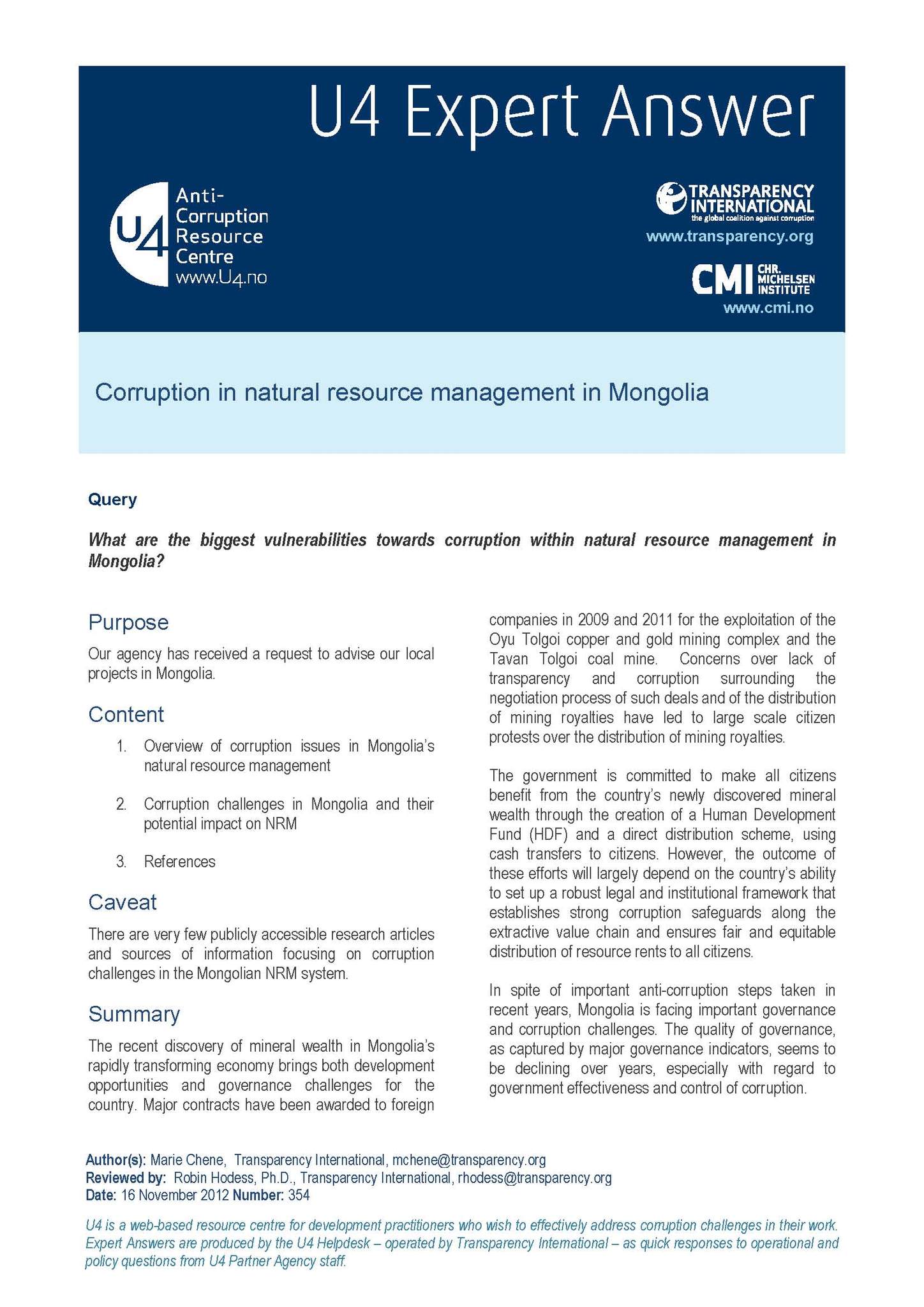Corruption in natural resource management in Mongolia
-
Summary The recent discovery of mineral wealth in Mongolia’s rapidly transforming economy brings both development opportunities and governance challenges for the country. Major contracts have been awarded to foreign companies in 2009 and 2011 for the exploitation of the Oyu Tolgoi copper and gold mining complex and the Tavan Tolgoi coal mine. Concerns over lack of transparency and corruption surrounding the negotiation process of such deals and of the distribution of mining royalties have led to large scale citizen protests over the distribution of mining royalties.
The government is committed to make all citizens benefit from the country’s newly discovered mineral wealth through the creation of a Human Development Fund (HDF) and a direct distribution scheme, using cash transfers to citizens. However, the outcome of these efforts will largely depend on the country’s ability to set up a robust legal and institutional framework that establishes strong corruption safeguards along the extractive value chain and ensures fair and equitable distribution of resource rents to all citizens.
In spite of important anti-corruption steps taken in recent years, Mongolia is facing important governance and corruption challenges. The quality of governance, as captured by major governance indicators, seems to be declining over years, especially with regard to government effectiveness and control of corruption.

